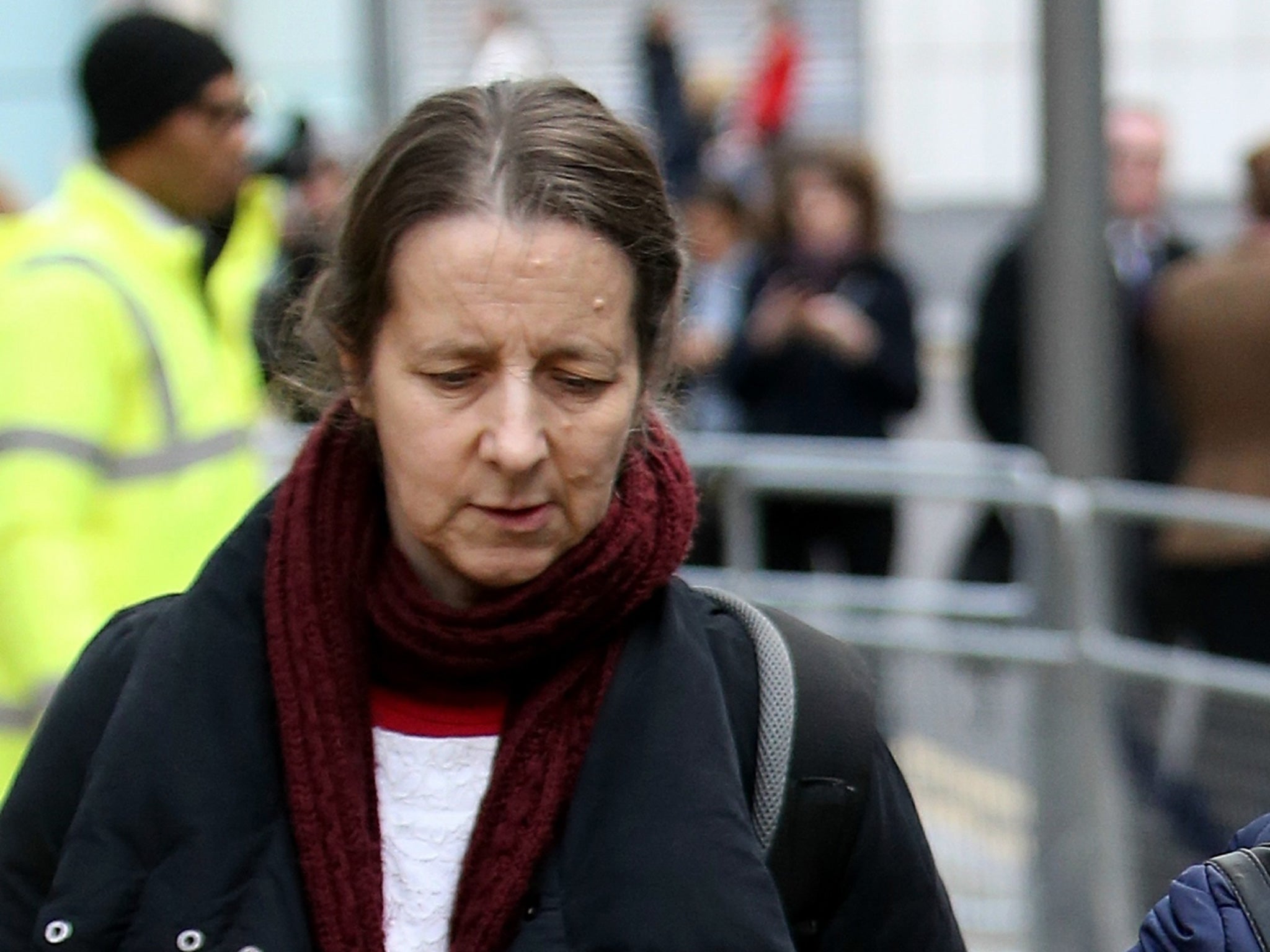Woman who helped Comrade Bala's daughter escape refuses to believe cult leader is guilty
Josephine Herivel - who has been diagnosed with Stockholm syndrome - claims politicians exploited her label as a victim

The woman who helped Comrade Bala’s daughter to escape from his communist collective after 30 years of imprisonment has been diagnosed with Stockholm syndrome and refuses to believe that the cult leader is responsible for any crimes.
Josephine Herivel, 59, described Aravindan Balakrishnan as her “life-support machine”, who gave the talented violinist a reason to live after she was plunged into depression while studying at the Royal College of Music in the 1970s.
After she unwillingly agreed to help Balakrishnan’s daughter “Fran” to flee her father’s control, she says the authorities moved her out of London against her wishes, and claims that politicians have exploited her unwanted label as a victim to help drive through a law on modern slavery.
She was in court when Balakrishnan was convicted of rape, unlawful imprisonment and child cruelty. “You are sending an innocent man to prison,” she shouted after the jury reached their verdicts. “Shame on you.”
Ms Herivel became the main carer for Fran after the death of the girl’s mother in 1997, and agreed not to tell the brutal cult leader of the plan to flee from the collective. She made the phone call to the Freedom charity which led to their escape.
“I respected what she wanted but it was not what I would have wanted. I was upset by the whole situation,” she told The Independent. “I agreed to help and find her somewhere to live and establish herself somewhere else.
“I was questioned for 12-14 hours constantly and I kept telling them, ‘I’m not a slave, I’m nothing of the sort. I could have left at any time.’ I felt I was buried alive by the media propaganda on this issue.
“Nobody here listens to what I’m saying. They diagnosed me with Stockholm syndrome. It’s totally wrong. I’m being politically persecuted. It was a political case right from the start.”
Stockholm syndrome – a condition whereby hostages build a close bond with their captors – was a term coined in 1973 after a six-day bank siege in the Swedish capital. The term has been most notably associated with Patty Hearst, the Californian newspaper heiress, who joined revolutionary militants in a robbery after they kidnapped her.
Following their flight from the house, Ms Herivel says she was warned off contacting Balakrishnan’s daughter – the key witness in the trial – under threat of arrest, and has not seen her for months.
Speaking from a call box at an undisclosed location in the north of England, Ms Herivel used the phrase adopted by the police after uncovering the cult in October 2013 to describe her own plight.
“Right now, I’m being held in invisible handcuffs by the police and all the other agencies,” she said. “I was a happy person in the collective. I never attempted to leave. I only left to help [Fran]. It’s my family, my home: it has all been taken away from me.
“They have used our case to get this Bill through on slavery. Everybody was talking about it. Cameron was talking about it, Theresa May was talking about it, saying it was the tip of the iceberg. All these people have stood up to talk about me and I can’t tell you how angry I am.
“The only thing that keeps me alive is thinking about Aravindan Balakrishnan and the collective. That’s the only time I can feel a little bit happy, thinking about all the people I love.”
The softly spoken Ms Herivel was born in Belfast, the daughter of brilliant mathematician John Herivel, who was recruited from Cambridge University to break German military code at Bletchley Park during the Second World War. She moved to London to study but says that she became involved in communist politics after attending rallies and hearing Balakrishnan describe his treatment at the hands of the police. She claims she was thrown out of the Royal College after wearing a Mao badge on her clothing. She is estranged from her family.
“I was a very depressed person before I met him [Balakrishnan],” said Ms Herivel. “He lifted me up out of this depression. He was my life support and the police and everything are trying to switch that off. I can’t live without Aravindan Balakrishnan and the collective.”
She and another member of the collective, Aisha Wahab, a Malaysian, who has also been moved to the north of England, were not used as witnesses as the trial. Police said one of them – believed to be Aisha – refused to make a statement.
Subscribe to Independent Premium to bookmark this article
Want to bookmark your favourite articles and stories to read or reference later? Start your Independent Premium subscription today.
